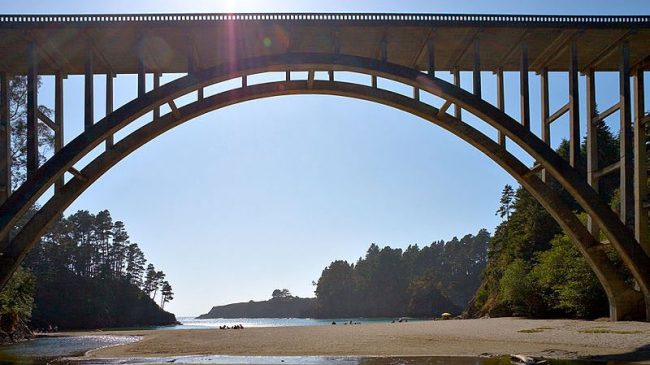Recently the California State Senate voted to raise gas taxes and automobile fees by $5.2 billion a year — money that is supposed to be used to fund transportation improvements. The Legislature had already approved the plan after Gov. Jerry Brown made deals to earmark some of the bill’s funding for Riverside County and the Central Valley. Brown’s deals to secure votes have raised some eyebrows.
Assembly Republican Leader Chad Mayes, R-Rancho Mirage, went so far as to say some legislators were “bought off.”
The bill increases the state gas tax by 12 cents per gallon and diesel taxes by 20 cents a gallon. It also creates a new vehicle license fee. Drivers whose cars are worth less than $5,000 would pay a $25 fee; those with vehicles valued between $5,000 and $25,000 would pay $50. As the value of the cars increases so do the fees, topping out at $175 per vehicle.
In 2020, the state will also start charging electric vehicles, which don’t pay gas taxes, $100. Electric vehicle owners use the roadways and they should pay to repair them. The average driver in California is going to pay $300 in state gas taxes, so drivers of other electric vehicles are still being subsidized. California certainly needs to improve the quality of its roadways. According to Reason Foundation’s Annual Highway Report, California ranks 42nd in the nation in overall highway performance and cost-effectiveness. The state ranked 48th in urban interstate pavement condition and 48th in urbanized area congestion despite spending more than 43 other states on a per-mile basis.
And that in a nutshell is California’s problem. Politicians keep spending money on transportation, and yet congestion and mobility continue to get worse.
Legislators could and should demand accountability from state transportation agencies. If taxpayers are going to get stuck with increased fees and gas taxes, taxpayers should also demand legislators pass commonsense reforms to improve the efficiency and effectiveness of the state’s transportation spending.
First, prioritize repairs on the roads most used. Most state transportation departments should place maintaining their existing roadways as a top priority. While Caltrans claims maintenance is a priority, it is far behind on much-needed repair and upkeep work. Forgoing routine maintenance only leads to a need for more extensive, costlier maintenance in the end. But instead of prioritizing these types of repairs, much of the revenue from the gas tax increase will be diverted to extend a commuter rail line that has an abysmal cost-benefit rating and to help build a high-speed rail line that seems destined for a costly failure — if it ever actually gets completed.
Second, the state should develop quantitative metrics to determine the priorities and projects that receive taxpayer funding. Transportation projects should be evaluated on a scale that is based on their ability to increase mobility, reduce congestion and spur economic activity. Projects that score highly should be prioritized while those that score poorly should be deferred. North Carolina and Virginia have adopted similar scoring methods that reduce political influence and focus on key transportation-related metrics.
Third, make greater use of public-private partnerships (P3s). California’s leaders repeatedly claim that they want to enter into more P3s, but transportation unions have been resistant. If they’re allowed to do so, private transportation companies can help fund the mega-projects that California’s biggest cities need.
Finally, instead of diverting funding, the state should embrace the users-pay concept. The state is raising gas taxes and vehicle fees. The people paying those taxes should see results on the roads they drive on.
California’s politicians consistently tell taxpayers that the state’s infrastructure is crumbling. The Legislature and Gov. Brown are about to force taxpayers to cough up over $5 billion a year in taxes and fees. Will the state spend that money effectively on the roads and bridges the state says are in disrepair? Or will walking trails and failing rail projects eat up large chunks of the money? Sadly, state taxpayers know the answer.
Baruch Feigenbaum is assistant director of transportation policy at Reason Foundation.

